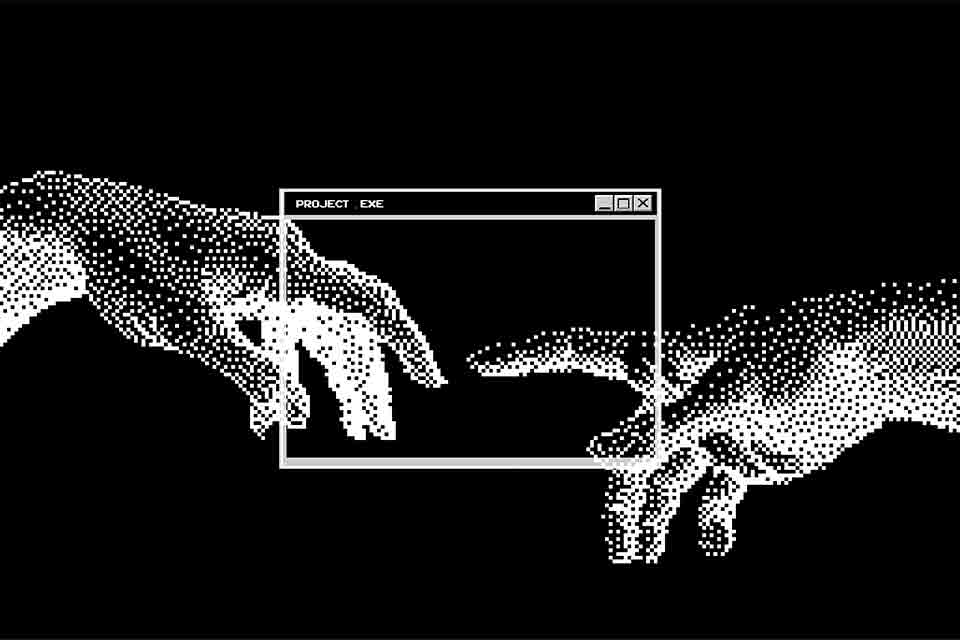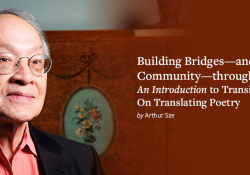Notes on AI: The Master’s Tool

Today, we celebrate the first glorious anniversary of the Information Purification Directives. We have created, for the first time in all history, a garden of pure ideology—where each worker may bloom, secure from the pests of any contradictory thoughts. Our Unification of Thoughts is more powerful a weapon than any fleet or army on earth.
—Big Brother’s Speech from 1984, by George Orwell (1949)
The master’s tools will never dismantle the master’s house.
—Audre Lorde (1979)
AI-powered writing assistants always find fault. My voice would disappear from the page if I accepted even a quarter of their suggestions. Artificial intelligence is a tool and, as such, is inherently neither good nor bad. However, neither is it neutral in the hands of an unregulated corporate class intent on establishing a techno-feudal world order. AI is an extractive technology, dependent on widespread theft of intellectual property and the appropriation of public resources for private enrichment. Its billionaire technocrat masters are undermining our democratic systems, destabilizing our grasp on lived reality, and exhibiting all the patriarchal and white-supremacist characteristics of the familiar Western colonial project. AI is everywhere, and its destructive potential is greater than any weapon in history.
While researching this essay, I accumulated extensive data about large and small language models, machine translation, the obscene enrichment of the Masters of Big Tech, their cultish, transhuman aspirations, and the harm they are doing to global society, marginalized cultures, and the environment. The topic is technically complicated, vast, and frankly depressing. I became lost in the weeds, aware I had yet to understand the existential dread I feel about the topic.
Literary translators are immersed in language: the nuances of meaning transfer, register, and cultural context. We are obliged to speak out when our profession is threatened by the global megamachine that claims to do what we do faster (yes), cheaper (somewhat), and better (absolutely not). But oddly enough, people’s livelihoods, including mine, are the least of my concerns.
Because this is not a drill.
Because language is humanity’s greatest invention.
Because if we reassign our role as language creators to AI, we will lose what makes us human.

If we reassign our role as language creators to AI, we will lose what makes us human.
* * *
Nightmare: I am back in my old West Harlem apartment, the first place that was mine and felt like home. Entitled-looking strangers crowd in, occupying the space. I discover things are missing, but the invaders only smirk when I accuse them of stealing from me. As more objects disappear, I become increasingly furious at the strangers. I want to scream at them to get out, and my mouth opens wide, but no sound emerges. They mock me.
My head is the place I call “home”; the strangers are AIs. My missing things are my precious words. I am terrified I will be rendered speechless.
* * *
Many literary translators struggle with feelings of inauthenticity. I am no different. Translation is a form of writing, but many don’t see it that way and deny us adequate compensation and credit. Writing makes me a more thoughtful, elegant, and respectful translator. Through writing, I explore my humanity; through translation, I search for my shared humanity with others.
I don’t translate for the product but for the process.
This is an inherently anticapitalist sentiment.
* * *
I consult with two of my touchstone writers, Michelle Cliff and Audre Lorde, about my nightmare.
LGBTQIA+, women, the disabled, immigrants, people of color, and Indigenous communities know a lot about the wound of speechlessness, which is not the same as silence or the absence of words. When we fill the page or the air with syllables, we may still deny ourselves the freedom of genuine expression. We edit ourselves to sound less angry and appear smarter. We crack jokes, often at our own expense. These strategies camouflage our truths and dissimulate our fury. We have learned that it’s dangerous to tell our truths. AI wants us to be “nice.” On social media, it queries, “Are you sure you want to say that? Posts like yours have been flagged . . .”
The wound of speechlessness is not the same as silence or the absence of words.
As Cliff says, “Speechlessness begins with the inability to speak; this soon develops into the inability to act. The inability to act is part of the implosion.”[i]
When we let AI write or translate for us, we stop seeking and creating language. We accept its voice in place of our own. Awash in words, we learn speechlessness and passivity. We turn everything, including our anger, inward, and it makes us sick and unable to defend ourselves.
Lorde reminds me that AI itself is not the problem: patriarchal systems and white supremacy are both the master’s house and his tools.
Yes, but Audre, AI is made in the image of those systems!
Yes, she says.
* * *
Blinding-White Colonists High on Testosterone
The overwhelming majority of the masters of AI are white and male: Peter Thiel, Alex Karp, Elon Musk, Jeff Bezos, Sam Altman, and Mark Zuckerberg, among others. They equate wealth with intelligence and therefore feel entitled to determine the destiny of our nation and the planet. They think of themselves as philosophers.
Thiel, who is simply a money guy and not an engineer, is the founder of Palantir. His company, which provides advanced AI-driven data mining, surveillance, and analytics programs for governments (see: global panopticon), asserts that the values and advancement of Western civilization are threatened by non-Western cultures,[ii] which he qualifies as passive and backward. For him, “progress” is measured in ever more powerful machines, not kinder, wiser, healthier, or better-educated human beings. For him, culture is a zero-sum game that the West must win.
Like any diehard colonialist, he shows no shame when he is filmed expressing these sentiments or when his AI is employed to industrialize a genocide or spy on Americans. In a video interview with New York Times columnist Ross Douthat, Thiel hesitates for an excruciatingly long time before answering a simple question: Should humanity continue to survive? Yes, he finally says, but . . .[iii]
The masters of AI are transhumanists; they want to be part machine.
They want life extension for themselves, not for you.
They see no future for people who aren’t part machine.
They want to colonize the ocean (sea-steading) and outer space.
As he talks about these things, Thiel’s face is expressionless, masklike.
* * *
The Registry of Power
Black futurist and technologist Thaddeus Howze writes: “Having worked in the tech industry for thirty years, I can safely say I have never worked anywhere that had more than three Black people in it at the same time in the same proximity, until I became a senior manager and mandated it to be possible, against the judgment of my superior.”[iv] Women hold only about 11 percent of executive positions at Silicon Valley tech companies, a percentage unchanged in fifteen years.[v] The equity investment sector, which fuels Big Tech with massive infusions of cash, is similarly white and male. According to data analytics company Morningstar: “Whereas white and Asian populations, regardless of gender, comprise a larger representation . . . compared with their respective share of the US population, Black and Hispanic populations are underrepresented . . . and women fill just 18 percent of portfolio manager roles and 26 percent of analyst roles.”[vi] Indigenous people are all but invisible in both sectors, de facto excluded from deciding what tech products are developed or how.
AI applications are created and disseminated worldwide without meaningful input from those who have historically borne the burden of economicand political disenfranchisement. The technology is “ultimately designed to serve those existing dominant interests,” emphasizes Kate Crawford in her book Atlas of AI. “In this sense,” she writes, “artificial intelligence is a registry of power.” When considering how AI functions in the world, Crawford asks us to consider “what is being optimized, and for whom, and who gets to decide.”[vii]
* * *
Groping for Words
A bright teenager in my writing class squirms when I ask her to think of synonyms for a simple word she habitually overuses. Her gaze becomes abstracted, and she looks like she might burst into tears. She can't think of a single one.
Linguistic devolution is observable in young people living hyperdigital lives and relying on AI-powered apps for texting, emailing, and drafting papers. In an MIT study, students who used ChatGPT to write an essay demonstrated less brain activity than others completing the same assignment, clocking “less alpha connectivity, which is associated with creativity, and less theta connectivity, which is associated with working memory.”[viii] Thus, AI damages the vastly more agile, nuanced organ it is designed to mimic and surpass. What will become of parasitic AI when our brains have gone blank and it can’t feed off us anymore? What will become of us when we can no longer access a rich, diverse vocabulary to describe our embodied experiences?
According to Cliff, we will implode. It will not be pretty.
Maybe we are imploding now.
* * *
Like the Earth itself, language undergoes dynamic erosion and renewal.
Like the Earth itself, language undergoes dynamic erosion and renewal.
Words die when the people who use them are killed, and wars and natural disasters obliterate their homes. Words are retired from dictionaries to keep them at a marketable size and serve the prejudices of publishers, whose decisions sometimes betray the aims of poetry.
We also give birth to words at a dizzying rate: According to the Global Language Monitor, “a new word is created every 98 minutes, about 14.7 words a day or 5,400 words a year.” Many of my favorite words were invented relatively recently. To Mark Twain, we owe bug out, blip, and lunkhead, among many other gems. To Shakespeare, we are grateful for swagger, bedazzled, and cold-blooded. Bling and dope are two of the many contributions from hip-hop. Quark from James Joyce’s Ulysses is but one example of how science mines literature to describe novel phenomena.
We cannot conceive of things or ideas for which we have no words.
Tectonic instability and organic evolution are the soul of language, which perpetually mulches and regrows itself. And because words guide our philosophical, metaphysical, and spiritual perspectives, they help us see what was once invisible and imagine what has yet to become. If this embodied process is shut down, we will go intellectually and spiritually blind, and the future will cease to be.
* * *
The future has already ceased to be for some people.
The depredations of colonialism and globalization are killing off marginalized languages and the umwelts they contain at a breathtaking rate: the UN indicates that the death toll is about one language every two weeks.[ix] Words fail to express what a tragedy this is for the Indigenous people who spoke those languages and for all humanity. Linguicide deprives us of unfathomable amounts of knowledge, wisdom, history, and potential.
However, linguistic diversity and freedom are contrary to authoritarian interests; language control is the essence of propaganda, which aims to mislead in ways advantageous to centralized power and never to the majority. It seeks to align our thoughts and actions with those of the Great Leader, even when those thoughts and actions are clearly against our best interests. Hitler and Mussolini understood this. So does the current US administration, which has tagged more than 350 words or expressions to ban, limit, or avoid on federal websites, including women, disability, Native American, and Gulf of Mexico.[x] The ferocity of this censorship surpasses McCarthyism in its unrepentant authoritarian impulse.
Ironically, the “Unification of Thought” speech from Orwell’s novel was used in Apple’s famous 1984 Super Bowl commercial to introduce the Macintosh computer as a symbol of personal liberation.[xi] Apple’s historical use of forced manufacturing labor in Asia contradicts this cynically delivered marketing message. And in July 2024 YouTube producers revolted after discovering that Apple and three other companies had mined their creative work and compiled it into a massive dataset called YouTube Subtitles to train AI, without seeking the creators’ permission or offering them compensation.[xii]
Corporate theft is not liberation.
Techno-feudalists are working to normalize this dynamic.
When we train AI with our ChatGPT queries, social media posts, and every Captcha we solve, we work for free for the Masters of AI.
They see us as serfs.
* * *
An older woman shows the cameraman the rusty drizzle from her kitchen tap. She and her defeated-looking husband explain that Meta has stolen their well water. Then they take the interviewer outside where he can hear the grating, 24/7 mechanical hum emerging from the data center, built four hundred yards from their home in rural Fayette County, Georgia.[xiii] Meta conspired with the local “business-friendly” government to rezone this area so it could expand its facilities. The home where this couple planned to live out their golden years has become a waterless, dystopian battlefield.
* * *
Each of the more than 11,800 data centers worldwide, half in the US, consumes an average of three thousand gallons of pure water and the equivalent of one thousand households, or a midsized city’s worth, of electricity every day.
This is corporate colonization, and it’s happening everywhere, maybe even in your backyard. The most significant expansion of data centers, however, is in the Global South. Hyperscale data-center construction by US companies is exploding in Singapore, Southeast Asia, Chile, and Brazil, where the brick-and-mortar “cloud” infrastructure imperils already beleaguered coastal Indigenous populations.
The figurative sense of the word “culture” derives from the Latin cultura, which means to tend, guard, till, or cultivate. Languages die when the vital connection between them and the land is severed.
* * *
Hopeful Signs
Indigenous people are creating small language models and open-source applications through community-based, nonprofit organizations to preserve and, more importantly, restore Native languages to their people.
Michael Running Wolf (Northern Cheyenne/Lakota/Blackfeet), a former Alexa engineer, co-founded Indigenous in AI, a network supporting Native, Aboriginal, and First Nations technologists. Peter-Lucas Jones (Māori), CEO of Te Hiku Media, led the development of a Māori-language speech recognition system that maintains control over its language data to protect it from external commercial interests. Shani Gwin (Cree) founded wâsikan kisewâtisiwin, an Edmonton-based startup that develops AI tools to detect and correct anti-Indigenous racism and bias in online content. Mikaela Jade (Gamilaraay), Children of the Rainforest (a project of IndigiGenius), Danielle Boyer (Ojibwe), and others are also engaged in using AI to drive Indigenous-led efforts for cultural restoration and defense.
These are mission-driven, nonprofit projects whose leaders strive to bridge the significant digital divide. Big Tech’s attempts to intrude and appropriate Indigenous datasets complicate their efforts, but, in the right hands, AI can accomplish restorative, targeted, specific tasks.
* * *
Slower Language for a Slower Humanity
Velocity and profit are the two drivers of capitalism. AI language models achieve these goals by cutting out creators and not caring if quality is sacrificed for speed. If we permit a mentality of “malignant normality” to take root, to use Adorno’s term, one in which we cannot imagine life or language without the doubtful “convenience” of AI tools, or the constant distraction of our digital devices and their reality-distorting habit, then we condemn ourselves to serfdom in a techno-feudalist state. The corporate obsessions with velocity and profit will transport us to a near future in which literary products replace literature, as, in some quarters, cheese products replace cheese; a world in which the vitality and natural evolution of language is stunted and sacrificed to the goals of control and domination. Faced with a flood of AI-rendered books and “content,” called slop even by the industry that produces it, quality literature will be harder to see. We will grow accustomed to what Orwell called a “gumming together” of “long strips of words, which have already been set in order by someone else . . . making the results presentable by sheer humbug.”[xiv]
We must strive to defend a diversity of languages, protect word workers and creators, and prioritize collaboration over competition. We must call out automation when it serves money interests but not human ones. We must demand our data privacy, as the European Union is now doing for its citizens, and the regulation of Big Tech. If we do not, we condemn ourselves to speechlessness and mass suffering. And then, the real nightmare will begin.
Hillsborough, North Carolina
[i] Michelle Cliff, “Notes on Speechlessness,” Sinister Wisdom, no. 5 (Winter 1978): 5.
[ii] Stephen Diehl, “Deconstructing the Worldview of Peter Thiel,” February 1, 2023.
[iii] “Peter Thiel and the Antichrist,” interview with Ross Douthat, June 26, 2025.
[iv] Thaddeus Howze, “The Incredible Whiteness of Technology,” Medium, November 8, 2015.
[v] Maya Kosoff,, “Here’s Evidence That It’s Still Not a Great Time to Be a Woman in Silicon Valley,” Business Insider, January 2, 2015.
[vi] Bridget B. Hughes et al., “Diversity in Asset Management: A View into Gender and Racial Representation within Investment Teams,” Morningstar, November 19, 2024.
[vii] Kate Crawford, Atlas of AI: Power, Politics, and the Planetary Costs of Artificial Intelligence (Yale University Press, 2023), 8–9.
[viii] Kyle Chayka, “A.I. Is Homogenizing Our Thoughts,” New Yorker, June 25, 2025.
[ix] UN News, “UN Launches 10-year Survival Plan for Endangered Indigenous Languages,” December 16, 2022.
[x] AJ Connelly, “Federal Government’s Growing Banned Words List Is Chilling Act of Censorship,” PEN America, May 28, 2025.
[xi] 1984 Apple Super Bowl Commercial, YouTube.
[xii] Noor Al-Sibai, “YouTubers Furious After Apple and Anthropic Steal Their Data to Train AI,” The Byte, July 17, 2024.
[xiii] “I Live 400 Yards from Meta’s Massive Data Center,” More Perfect Union, YouTube.
[xiv] George Orwell, “Politics and the English Language” (1946), Orwell Foundation.










